Breaking the Cycle: How Co-Responder Teams and Assisted Outpatient Treatment Reduce Repeat 911 Calls and Hospitalizations
Communities across the United States are confronting a familiar and costly pattern:
Communities across the United States are confronting a familiar and costly pattern:
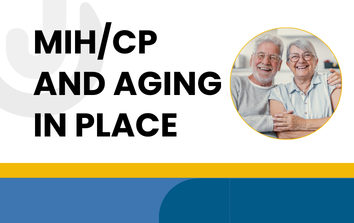
Many people feel the most comfortable receiving care in their own home.

I recently came across the Colorado Springs Fire Department (CSFD)’s 2025 call
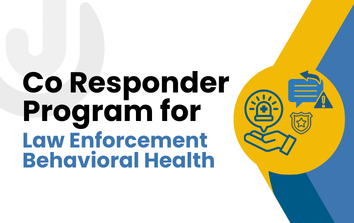
Behavioral health calls are some of the most common, complex, and emotionally
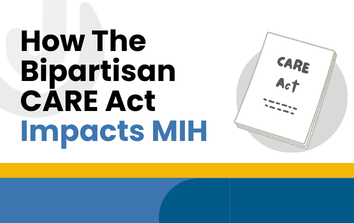
The future of EMS is shifting from a transportation model to a
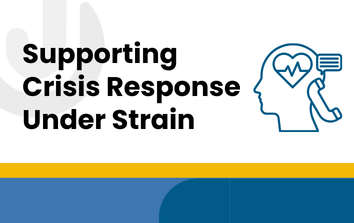
In 2022, the launch of the 988 Suicide and Crisis Lifeline promised

The Healthcare Effectiveness Data and Information Set (HEDIS) is a widely used
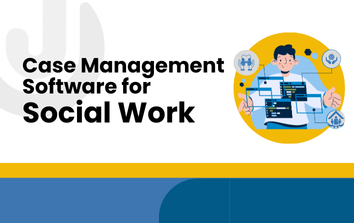
Public safety agencies across the country are navigating a new era. Rising

CAMTS Accreditation for MIH programs can open new doors, while also serving
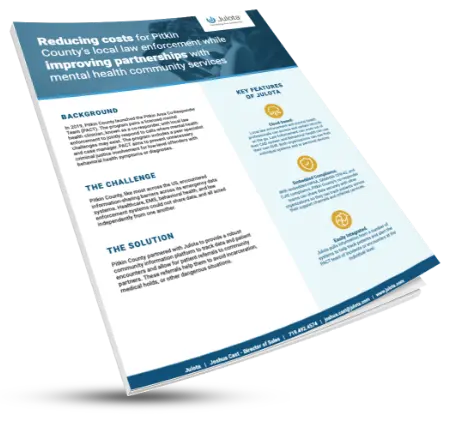
See How Similar Programs Are Scaling Up and Transforming Patient Experiences.



Last Updated: July 30, 2024
Julota is committed to protecting your privacy and is constantly working to give you a safe online experience. This “Privacy Policy” applies to Julota and governs its data collection and usage. Please read our Privacy Policy for more information.
You do not have to provide any Personally Identifiable Information to browse the publicly available pages of the Site; however, in order to obtain or use products or services that are or may be provided through the Site or that we may otherwise offer online or offline (collectively, the “Services”) you may be required to register and/or provide Personally Identifiable Information.
We may collect Personal Data from you in a variety of ways, including, but not limited to, when you (i) register on the Site; (ii) fill out forms or fields on the Site or offline; (iii) complete an application for a product or service available through the Site; (iv) communicate with us through the Site or by email, telephone, facsimile or other electronic means; (v) process payments; (vi) provide us with Personal Data; (v) participate in activities or utilize resources provided by or through Julota; or (vi) submit or authorize the submission by third parties to submit information through the Site. We collect or may collect, among other Personal Data you provide to us, the following categories of Personal Data from you:
We will treat as Personal Data any item that, either alone or together with other information, we could use to identify an individual. Except as described below, we will not share with third parties any personal information without your permission.
By providing your Personal Data to us, you explicitly agree to our collection and use of such information as described in this Privacy Policy. By providing Personal Data belonging to another person, you expressly represent and warrant that you have the authority and right to do so, and that you obtained all appropriate and required consents.
We may also collect your Personal Data from sources that you have authorized to share with us or that you have authorized us to obtain information from.
We may also collect information about you from third parties related to transactions you are contemplating entering into with us or that you have entered into with us.
If you believe we received our personal information from a source without authority to share your personal information with us, please contact us so that we can resolve your complaint.
Julota may collect information about you automatically when you visit the Site, communicate through the Site, or use any of our online Services.
System Information: We may automatically receive certain information from your browser or mobile device, such as your browser type, the operating system of your device, the equipment you use to access the Site, and the unique identifier of your mobile device.
IP Address: We may also receive your IP address and the name of the internet service provider (“ISP”) or your mobile carrier.
Browsing Information: We may collect the URL of the site from which you came and the URL of the site you visit when leaving the Site or any of our online Services and your activities on the Site, such as webpages you view and how you interact with those webpages.
Location: We may collect, depending on your device’s settings, location data and other types of information sent from third party services or GPS-enabled devices.
Site Usage: As you use the Site or any of our online Services, we may also collect information about such usage and your actions on the Site, such as pages you viewed, access times, and how long you spend on a page. We may use cookies to collect such information, as described in more detail below. This information is considered Non-Personal Data, which we can use for any purpose, including, without limitation, to help us improve the Site or the Services and to enhance your, and other users’, experience.
Aggregated Anonymized Data: We may also convert personal information into Non-Personal Information by excluding information that is personally identifiable. You acknowledge that Non-Personal Information and Personal Information that is converted into Non-Personal Information belongs to Julota and that Julota has the right to use such general information as it determines in its sole discretion.
The Site or our online Services may use “cookies,” or other identifiers, which may be stored on your device, to recognize you as a user when you return to the Site or use the online Services using the same computer and web browser and to maintain your preferences. We use cookies and other identifiers to identify which areas of the Site or online Services you have visited and how you interact with the Site. We also may use this information to better personalize the content you see on the Site or online Services, serve you with personal advertisements for Julota and third-party products, either via email, on our Site, or on other websites on the internet . We do not store unencrypted Personal Data in cookies. We also do not link Non-Personal Information from cookies to your Personal Data.
In addition, we may use the services of advertising platforms to provide relevant marketing to consumers concerning our Services.
In general, we use four different types of cookies:
Strictly necessary cookies: These cookies are necessary to enable the basic features of the Site, including any of our applications, such as providing a secure login.
Functional cookies: These cookies allow our Site to remember your site preferences and choices you make on the Site. We also use functional cookies to facilitate navigation, to display content more effectively, and to personalize your experience.
Advertising cookies: Advertising cookies allow us to select which advertisements and offers you may like. We also use cookies to track online responses to advertisements and other marketing to better understand your interests so that we can present more relevant advertisements and messages to you.
Analytics cookies: Analytics cookies help us improve our website by collecting and reporting information on how you use it.
Disabling Cookies on Your Browser: Some browsers may allow you to manage the storage of cookies on your device. If supported by your browser, you may set your browser to refuse all cookies (or, sometimes all third-party cookies) or to alert you when a cookie is placed. However, if you select these setting, you may be unable to access certain parts of the Site or the online Services. Unless you have adjusted your browser setting to refuse cookies, the Site and online Services will issue cookies. For more information about how to manage your cookie preferences, use the ‘help’ menu of your web browser or explore the customer support sections of your web browser. To opt-out of all cookies or certain advertising cookies, visit the company website for your browser for instructions.
Opting-out of Personalized Ads: You can opt-out of receiving personalized ads from advertisers and ad networks that are members of the Network Advertising Initiative (“NAI”) or who follow the Digital Advertising Alliance (“DAA”) Self-Regulatory Principles for Online Behavioral Advertising using their respective opt-out tools. The NAI’s opt-out tool can be found here: http://www.networkadvertising.org/choices and the DAA’s opt-out tool can be found here: http://www.aboutads.info/choices/.
In addition, your mobile devices may offer settings that enable you to make choices about the collection, use, or transfer of mobile app information for online behavioral advertising (for example, Apple iOS’ Advertising ID and Google Android’s Advertising ID). Please note that opting out does not prevent the display of all advertisement to you.
Except as described below, we will not share with third parties the link between your IP address and your Personal Data without your permission.
By providing your Personal Data to us, you explicitly agree to our collection and use of such information as described in this Privacy Policy. By providing Personal Data belonging to another person, you expressly represent and warrant that you have the authority and right to do so, and that you obtained all appropriate and required consents.
We may also collect your Personal Data from sources that you have authorized to share with us. We will use your Personal Data in those circumstances to provide the Services that your Personal Data was shared with us to fulfill. If you believe we received your Personal Data from a source without authority to share your Personal Data with us, please contact us so that we can resolve your complaint.
Julota may use personal information for the following purposes:
We retain your Personal Data for as long as necessary to fulfill the purpose for which it was collected and to comply with applicable laws. We use reasonable security precautions to protect your information while in storage
To determine the appropriate retention period for Personal Data, we consider the amount, nature, and sensitivity of the personal information, the potential risk of harm from unauthorized use or disclosure of your Personal Data, the purposes for which we process your personal information, whether we can achieve those purposes through other means, and applicable legal requirements.
We will use commercially reasonable methods to keep your Personal Data securely in our files and systems, taking into account the nature and sensitivity of your Personal Data.
Your browser may provide you with the option to send a “Do Not Track” signal to websites you visit. This signal is used to request that websites not send the requesting device cookies, but websites have no obligation to respond to such signal or to modify their operation. Our online sites may not recognize all web browser based “Do Not Track” signals. However, you may be able to modify your internet-enabled device’s web browser settings to block all cookies or third-party cookies.
Our Privacy Policy does not apply to any information you may send to Julota by email or instant messaging programs (e.g., AOL, Yahoo, etc.), or through social media networks, even if you open such programs or services by clicking a link displayed on the Site. Email, social media, and instant messages are not recognized as secure communication forms. Please do not send any information you consider private to us by email or instant message or through social media sites (e.g., Twitter, Facebook, etc.) due to the public nature of such postings.
The Site and the online Services may contain links to other websites. Julota is not responsible for the actions, practices, or content of websites linked to, or from, the Site or the online Services. You understand such websites may require you to agree to their terms of use and that we have no control over these terms. As always, you understand it is your responsibility to verify your legal use of a website, and use of information from the website and the corresponding website owner.
Julota takes special care to protect the privacy needs of children under the age of 13 and we encourage parents to be an active participant in their child’s online activities. Julota abides by the Children’s Online Privacy Policy Act (COPPA) and other relevant laws. The Site does not target and is not intended for children under the age of 13, and Julota will not knowingly collect Personal Data directly from them. If Julota discovers that a child has provided Personal Data directly through the Site, Julota will eliminate that data. The Site is only intended for persons 18 years of age or older. If you are under the age of 18, you must ask a parent or legal guardian for permission prior to submitting any information to this Site.
If you have knowledge that a child 13 years of age or younger has submitted Personally Identifiable Information to us, please contact us and we will delete the Personal Data collected belonging to that child. You may contact us by writing to us at the address below. Parent and guardians can also contact us by mail but before any information is disclosed, the parent will be required to provide verification of his/her identity and authority related to any request. We will only send the information to the parent email address in the registration file.
Julota fully complies with the federal CAN-SPAM Act. You can always opt-out of receipt of further email correspondence from us.
Under Section 1798.83 of the California Civil Code, residents of California can obtain certain information with whom they have an established business relationship. That information is about the Personal Data those companies have shared with third parties for direct marketing purposes during the preceding calendar year. The law requires companies to inform consumers about the categories of Personal Data shared with third parties, the names and addresses of those third parties, and examples of the services or products marketed by those third parties. To request a copy of the information disclosure provided by Julota under Section 1798.83 of the California Civil Code, please contact us via mail at the address below.
To the extent applicable, this Privacy Policy provides additional information to California, Colorado, Connecticut, Florida, Indiana, Iowa, Kentucky, Montana, Oregon, Texas, Tennessee, Utah, and Virginia residents whose Personal Information is collected pursuant to the California Consumer Privacy Act (“CCPA”)(as amended by the California Privacy Rights Act), Colorado Privacy Act (“CPA”), Connecticut Data Privacy Act (“CTDPA”), Florida Digital Bill of Rights (“FDBR”), Indiana Consumer Data Protection Act (“ICDPA”), Iowa Data Protection Act (“IDPA”), Kentucky Data Protection Act (“KDPA”), Montana Consumer Data Privacy Act (“MCDPA”), Oregon Consumer Privacy Act (“OCPA”), Tennessee Information Protection Act (“TIPA”), Texas Data Privacy and Security Act (TDPSA”), Utah Consumer Privacy Act (“UCPA”), Virginia Consumer Data Protection Act (“VCDPA”) and other states that may adopt laws after the publication of this Privacy Policy (generically referred to as “Privacy Laws”). The following rights do not all apply under each of the foregoing Privacy Laws. Some states and countries have adopted privacy laws that require specific disclosures. The following explains the rights you may have, depending on where you reside and the jurisdiction that Julota is subject to.
As applicable, the Privacy Laws supplement the information contained above in our general Privacy Policy and applies solely to visitors, users and others who reside in jurisdictions that Julota is subject to and that apply to you. Some or all of the privacy rights set forth below may apply to you. The following terms in this Section 13 supersede any inconsistent terms in any other sections of the Privacy Policy to the extent that any apply to you:
We do not sell your Personal Information. Under Privacy Laws, a business that sells personal information to others: 1) must give notice to that person before selling his/her personal information to others; and 2) must provide the right to opt-out of the sale of their personal information.
Under Privacy Laws, the right to obtain “specific pieces” of Personal Information does not grant a right to the whole of any document that contains Personal Information, but only the right to obtain items of your Personal Information. Additionally, you have a right to know “categories” of sources of Personal Information and “categories” of third parties to which personal information is disclosed, but not the individual sources or third parties. Julota does not always track individualized sources or recipients.
When receiving a request, we will verify that the individual making the request is the individual to whom the Personal Information subject to the request pertains. You may exercise your rights yourself or may use an authorized agent to make requests to disclose certain information about the processing of your Personal Information or to delete Personal Information on your behalf. If you use an authorized agent to submit a request, we may request that you provide us additional information demonstrating that the agent is acting on your behalf.
We collect information that may identify you, your household or your device or is reasonably capable of being connected with or linked to you, your household, or your device. “Personal Information” does not include public information available from government records, de-identified or aggregated information, or information that is protected by other laws.
See above for how we use your information. We will not use the personal information we collected for materially different, unrelated, or incompatible purposes without providing you notice.
We are not required to (1) retain your Personal Information if collected for a single one-time transaction if, in the ordinary course of business, that information would not be retained and (2) re-identify or otherwise link any data that, in the ordinary course of business, is not maintained in a way that would be considered personal information.
Unless otherwise required by applicable law, we are not required to grant your deletion request if retaining the Personal Information is necessary for us or our service providers to:
Once you make an opt-out request, we will wait at least twelve (12) months (unless a different period is legally required) before asking you to reauthorize Personal Information sharing with third parties. However, you may change your mind and opt back into Personal Information sharing with third parties at any time by mailing us at the address below.
We will only use Personal Information provided in an opt-out request to review and comply with the request. We will act upon your opt-out request within 15 days of receipt.
We will not discriminate against you, including employees’, applicants’, and independent contractors’ right not to be retaliated against, for exercising any of your rights under the Privacy Laws. We will not:
We use your Personal Information only as permitted by law. Our legal bases for processing Personal Information are as follows:
If you have such right, and you wish to request the erasure of Personal Data stored by us, you may, at any time, contact us via email to make such request as provided in Section 15 below.
Where we have made Personal Data public and are obliged to erase the Personal Data, we shall, taking account of available technology and the cost of implementation, take reasonable steps, including technical measures, to inform others processing the Personal Data that you have requested erasure. We will arrange the necessary measures in individual cases.
This Privacy Policy provides additional information concerning the collection and use of consumer health information (“Consumer Health Data”) subject to the Washington State My Health My Data Act (“MHMDA”), the Nevada Health Data Privacy Act (“NHDPA”), or other applicable state consumer health privacy laws.
As described in Section 2 (Information Collected and Consent) of this Privacy Policy, the data we collect depends upon your interactions and the reason for your interactions with Julota and the information you choose to make available to Julota, your location, and applicable law. As Consumer Health Information is defined differently depending on the jurisdiction you are located in or the applicable jurisdiction that governs your Consumer Health Information, many categories of data we collect may be considered Consumer Health Information in some jurisdiction and not in other jurisdictions.
As described in Section 2 (Information Collected and Consent) of this Privacy Policy, we collect Personal Data (which may include Consumer Health Data) directly from you, from your interactions with our Services, from third parties, and from publicly available sources.
Some examples of Consumer Health Data may include (this is not intended to be an exhaustive list):
In addition to Section 4 (How We Use and Share Your Personal Data) of this Privacy Policy, we may share Personal Data, including Consumer Health Data, with your consent or as reasonably necessary to provide the Services you have requested or authorized.
If you are covered by the MHMDA, the NHDPA, or other applicable consumer health privacy law then you may have certain rights with respect to your Consumer Health Data, including the right to access, delete, or withdraw consent relating to such data, subject to certain exceptions. You can exercise your rights by contacting us pursuant to Section 15 (How to Submit a Request to Julota to Exercise Your Privacy Rights) of this Privacy Policy.
If your request to exercise a right is denied, you may appeal that decision by contacting us pursuant to Section 15 (How to Submit a Request to Julota to Exercise Your Privacy Rights) of this Privacy Policy. If your appeal is unsuccessful, you may contact the Washington State Attorney general at www.atg.wa.gov/file-complaint, the Nevada State Attorney General at https://ag.nv.gov/complaints/file_complaint/, or other regulatory authority as applicable.
You may submit your verifiable requests to Julota at the address or email address set forth below:
Mailing a request to Julota at:
Julota
[INSERT ADDRESS OR PO BOX ADDRESS]
Email: [INSERT EMAIL ADDRES]
Unless otherwise provided for under applicable privacy law, only you, or someone legally authorized to act on your behalf, may make a verifiable request to your Personal Information. Unless otherwise provided for in applicable privacy law, we are not required to provide you with Personal Information more than twice in a 12-month period.
We will not be able to respond to your request to provide you with Personal Information if we cannot verify your identity or authority to make the request and confirm the Personal Information relates to you.
Unless legally obligated to respond in a shorter timeframe, we will try to respond to your request within forty-five (45) days of receipt of your written request. If we require more time (up to 90 days), we will inform you of the extension period in writing. We will deliver our written response by mail or electronically, at your option. Any disclosures we provide will only cover the 12-month period preceding the verifiable consumer request’s receipt. The response we provide will also explain the reasons we cannot comply with a request, if applicable. For data portability requests, we will select a format to provide your personal information that is readily useable and should allow you to transmit the information from one entity to another entity without hindrance, specifically by electronic mail communication.
We may request specific information from you to help us confirm your identity and process your request. Applicable law may require or permit us to decline your request. If we decline your request, we will tell you why, subject to legal restrictions.
Nevada law (SB 220) permits customers in Nevada to opt-out of the sale of certain kinds of Personal Information. A sale under Nevada law is the transfer of this Personal Information to third parties for monetary consideration so these third parties can then re-sell or license the sold information. We do not sell your Personal Information to third parties as defined in Nevada law. If you are a Nevada resident and wish to opt-out of the sale of your Personal Information, should we change our practices in the future, you must send a request to by mail.
Julota reserves the right to change the Privacy Policy from time to time as its sole discretion with or without notice. Revisions to the Privacy Policy regarding the use of Personal Information are not retroactive.
Personal Information voluntarily submitted to Julota online, via electronic communication, or otherwise, may be maintained or accessed in servers or files in the United States of America, which the European Union has not deemed to provide “adequate” privacy protection. If you do not consent to having your information processed and stored in the United States of America, please do not provide it to Julota.
To view or obtain a copy of our privacy policy related to employees, independent contractors, including individuals that perform work for Julota that are not employees, dependents, emergency contacts and beneficiaries of employees or independent contractors, please contact us. See Section 19 for contact information.
If you have any questions about the Privacy Policy, or to report a violation of the Terms and Conditions, please contact us by mail or email at:
Julota
102 S Tejon St Suite 1100, Colorado Springs, CO 80903
Email: in**@****ta.com